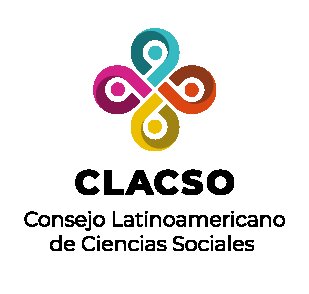Authors
Abstract
The objective of this work is to reflect on the importance of dialogue and collective memory in peacebuilding in Colombia, in the context of the peace agreement with the FARC-EP. It is framed in the research ‘Memories of Peacebuilding’ of CEDAT (2011-2018). The reflection focuses on the experience of social extension ‘Memories in dialogue’. Through dialogue and memory workshops, social actors such as survivors of the conflict, ex-combatants and community, religious and political leaders were involved. These activities generated collective narratives systematically documented and analyzed. The results show that the project facilitated the creation of collective memories and new narratives about the conflict, promoting coexistence and social reconciliation. The experience highlights the need for dialogic and ethical approaches to cohabitation, transforming social relations and building
peace in transitional contexts.
References
Bueno, M. (2006). La reconciliación como un proceso socio-político. Aproximaciones teóricas. Reflexión política, 8(15), 64-78.
Butler, J. (2006). Deshacer el género. Paidós.
Butler, J. (2010). Marcos de guerra: las vidas lloradas. Ministério Público do Estado da Bahia.
Carmona, D., Delgado, R. y Mejía, J. (2021). Línea de Convivencia. Documento de trabajo, línea de investigación CEDAT. Universidad de Caldas. Manizales.
Cifuentes, M. y Vallejo, S. (2018). Trabajo social y justicia social en tiempos de transición. Eleuthera, 18, 150-165. DOI: 10.17151/eleu.2018.18.9.
Delgado, R., Morales, Claudia J., Vallejo, S. (2022). Memorias de construcción de paz: aportes teóricos y metodológicos desde las experiencias de investigación, formación y proyección del Centro de estudios sobre conflicto, violencia y convivencia social- CEDAT (2011-2018). Informe de
investigación. Universidad de Caldas, Manizales.
Herzig, M. y Chasin, L. (2006). Proyecto de Conversaciones: A tuercas y pernos Guía del Proyecto de Conversaciones Públicas. http://www.publicconversations.org/jamsdownload.html.
Jelin, E. y Vinyes, R. (2021). Cómo será el pasado. Editorial NES:
Lederach, J. (2007). Construyendo la paz, reconciliación sostenible en sociedades divididas (2.a ed.).Red Gernika 2.
Peña, L. (2021).“Teorías de la reconciliación. Curso Pedagogías y Políticas de la Reconciliación” [video]. YouTube. https://youtu.be/r2lPixBEvP0
Reyes, M (2003). En torno a una justicia anamnética. En J. Mardones y M. Reyes. (Eds.). La ética ante las víctimas (pp. 100-125) . Anthropos.
Sánchez-Agudelo, P., Rojas-Granada, C., Aguirre-Álvarez, N., Cardona-Cardona, A. y Lugo-Agudelo, V. (2020). El diálogo como práctica colectiva para la reconciliación social. El Ágora, 20(2), 204-218.
Serrano, J. (2021). Reconciliation as social pedagogy: restrictive and alternative models to deal with past and present injustices. 10.5771/9783748923527-121.
Van Camp, T. (2014). Victims of violence and restorative practices. Finding a voice. New York: Routledge
Zehr, H. (2012). Cambiando de lente: Un nuevo enfoque para el crimen y la justicia. Herald Press. https://archive.org/details/cambiandodelente00zehr/page/174/mode/2up

 PDF (Español)
PDF (Español)
 FLIP
FLIP






























